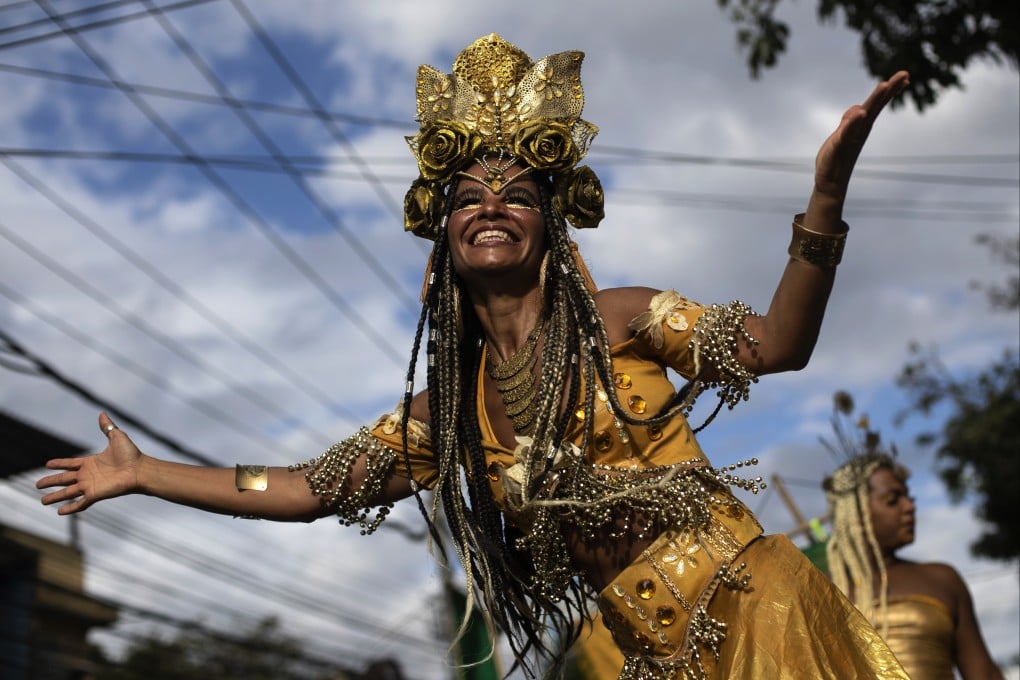Carnival in Rio de Janeiro is back after Covid-19, but will street parties go ahead after city refuses to authorise them? Probably
- The world’s biggest carnival, in Brazil, is back after Covid-19, but the famous blocos, or street parties, haven’t been given permission to go ahead
- Most revellers are determined to turn out anyway, and there was a recent protest to denounce government efforts to rein them in

Mayor of Rio de Janeiro Eduardo Paes on Wednesday ceremoniously handed control of the Brazilian city to King Momo, a ritual representing the upheaval of the status quo – and within hours, samba schools’ elaborate floats and feather-festooned dancers began parading between packed bleachers.
But it remains to be seen how much post-pandemic partying is in store during the first carnival in two years.
City Hall refused to grant permission for the more than 500 street parties that usually run wild through the city during the six days of what’s considered the world’s largest carnival. It claimed the authorities lacked sufficient time to prepare in the wake of disruption caused by Covid-19.
That dissonance has sparked debate over whether City Hall is stifling the essence of carnival, and if denizens should seize the streets as their own. Some organisers couldn’t care less what is allowed; they will turn out anyway – part party, part protest – and Paes, a confessed carnival enthusiast, has said he will refrain from deploying the Municipal Guard.

“City Hall won’t impede people from being in public spaces, from celebrating, but it’s impossible for it to happen with [so many people],” Paes said, in response to a reporter’s question after giving King Momo the city’s key.
His statement echoed recent comments he made while visiting samba schools that were putting finishing touches on their floats.